Programme
SOC24 programme
Why not join us for our annual pre-conference Pub Quiz if you are attending the conference in person. This is the perfect chance to have a taste of our well-loved British pub culture and what could be more 'Oxford' than doing a quiz for fun! Whether you've been before or it's your first time, this is a great chance to meet (& compete with) fellow attendees & our GO Lab team. All are welcome! The Pub Quiz will be at 7pm Wednesday 4th of September at the Oxford Retreat. Sign up for the Pub Quiz here!
We are able to offer a small number of free in-person tickets to UK public sector officials thanks to our partnership with the UK Government. Requests for these free tickets will need to include information on why the person wishes to attend the conference in person, and how attendance will benefit them and their them. This should be sent to golab@bsg.ox.ac.uk.
Photography and Video
All sessions of the Social Outcomes Conference that are streamed online are recorded and recordings will be distributed online after the session. Please be aware that by joining the session online, you consent to these conditions.
For in-person attendees, there will be photographers taking pictures and filming during both days of the conference. You may ask the photographer not to take your picture if you would prefer not to be photographed. You can also write to golab@bsg.ox.ac.uk about this and we will help you.
This may also be an issue as individuals take photos with their camera phones for social media purposes. Please speak up if you have concerns. Finally, if you would prefer not to be filmed by the videographer, you can do one or both of these things: sit at the conference in a place where the video camera is pointing at your back, and/or sit in the seats near the video camera so that it will not capture your image.
Registration opens
In-person participants will be able to register at the reception of the Blavatnik School of Government and enjoy tea, coffee and pastries with other in-person attendees and speakers.
Welcome to the Social Outcomes Conference 2024
The Government Outcomes Lab's leadership team will welcome online and in-person participants to this year's conference.
Find a recording of the event here.

Professor Ngaire Woods
University of Oxford
Keynote Discussion by Professor Tina Nabatchi
We are delighted that this year's keynote address will be offered by Tina Nabatchi, Joseph A. Strasser Endowed Professor in Public Administration and Director of the Program for the Advancement of Research on Conflict and Collaboration at the Maxwell School of Citizenship & Public Affairs, Syracuse University. She will draw on her decades of research on citizen participation, collaborative governance, conflict resolution and challenges in public administration to explore this year's conference theme of accountability, transparency & trust in cross-sector partnerships.
The keynote address titled "Of Clocks and Clouds: Addressing Public Problems in the 21st Century" will be followed by a panel discussion.
Find a recording of the event here.

Tina Nabatchi
Syracuse University

Dr Eleanor Carter
University of Oxford

Mario Calderini
Politecnico di Milano School of Management

Russell Jones
Southwark Council and SEL ICB

Dr Chih Hoong Sin
Independent

Dr Mara Airoldi
University of Oxford
Chair
Deep Dive 1.1 Strengthening partnerships for collaborative learning in outcomes-based financing for education projects
Outcomes-based financing (OBF) is emerging as an innovative financing approach in education aimed at enhancing effectiveness, accountability, and transparency in education programming. This panel discusses the critical role of collaborative learning amongst diverse actors in examining the opportunities and challenges of implementing OBF within the education sector.
Building strong partnerships among researchers, service providers, investors, and funders to engage in a collaborative learning process is an important avenue to enhance the global knowledge base on the complexities, challenges, and success of using OBF. Learning partnerships that foster open communication, trust, and collective meaning-making have the potential to better understand whether, how, and under what conditions the OBF approach is beneficial to improving education outcomes.
Featuring a diverse panel of researchers, service providers, investors, funders, and intermediaries, this discussion offers a comprehensive exploration of how diverse interests converge to provide equitable, inclusive, and quality education to all. Each panellist brings a unique perspective, enriching the discourse with their experiences and insights. The discussion will delve into the significant value that learning and research partnerships bring, the various models of engagement, the obstacles they face, and strategies to overcome these challenges. Furthermore, the discussion will focus on strengthening collaborative learning between different actors to benefit the global education community with a transparent knowledge repository on reflections and lessons learned on the use of OBF in education. The insights shared in the panel should be invaluable for stakeholders either considering OBF or who are already implementing education projects using OBF.
Find a recording of the event here.
Presentations
In 2024, the Royal Shakespeare Company launched the findings from its Paul Hamlyn Foundation-funded research project, Time to Act. The project’s randomised controlled trial measured the impact of RSC teaching …

Jacqui O'Hanlon
RSC

Dr Lynsey McCulloch

Dr Matthew Collins
RSC
The Education Outcomes Fund (EOF) is pioneering the use of outcomes funds for early childhood care and education (ECCE). Over the past two years, we have cultivated multi-stakeholder partnerships and …

Dr Özsel Beleli
EOF
The emerging outcome-based financing models in education have challenged education researchers to examine their influence on effectiveness, efficiency, and equitable provision in achieving the personal and societal aims of education …

Dr Vikas Maniar
TISS
UBS Optimus Foundation has been engaged with Outcomes Based Finance (OBF) since 2015 when we participated in the Educate Girls Development Impact Bond in India. UBS Optimus Foundation has since …

Sietse Wouters
UBS Optimus Foundation
Language and Learning Foundation (LLF) is a system-focused and impact-driven organization dedicated to improving foundational learning of children in early childhood education and primary schools. We collaborate with state governments …

Dr Dhir Jhingran
LLF
Deep Dive 1.2 Thinking big, thinking little: partnerships for climate and environmental impact at multiple scales
Climate change and environmental degradation present challenges on a global scale. The need to increase funding for environmental programmes and to maximise the impact of that funding, requires cross-sector coordination among states, international organisations, and the private sector. At the same time, environmental policy must adapt to specific places, their communities and contextual characteristics. The voices of citizens, civil society groups, and local co-creation become requirements for policy sustainability. This session will explore cross-sector partnerships for environment and climate policy at multiple scales. Key themes include: Global climate finance and the impact of investment; varying definitions and metrics for results; stakeholder engagement and co-creation of ‘green’ solutions; governance and administration to support multi-scale partnerships.
Find a recording of the event here.

Frances Pimenta
UK Government

Dr Harry Bregazzi
University of Oxford
Chair
Presentations
While climate finance is growing rapidly, it falls far short of the $3-6 trillion annual needs estimated by the World Bank to mitigate climate change impacts. It is thus critical …

Benjamin Stephens
Instiglio
The United States seeks to have a net zero greenhouse gas economy by 2050. Citizens as well as scientists, special interest groups including environmental justice groups are not afforded the …

Dr Patsy Kraeger
Chatham University

Dr Creed Tumlison
California State University
Sustainable development challenges include issues such as the consequences of climate change, inequalities in access to health and education, integration of immigrants and refugees, and several others which embody the …

Dr Benedetta Trivellato
University of Milano-Bicocca
Deep Dive 1.3 Benefits and challenges to outcome-based financing for health
In this session, we will take global stock of the landscape of outcome-based investments in health. We will then explore the experience of the benefits and challenges in this field, as well as the tried-and-true solutions to mitigate risks. This will be informed by international case studies in Europe, Australia, UK, and Netherlands. We will investigate key questions which have relevancy for any stakeholder interested in the area of health.
Key questions:
- What are the barriers to investing in health outcomes?
- What is the value-add of new funding types for achieving better health outcomes?
- How can we overcome the risks perceived by different actors in investing in health at the system-level?
Find a recording of the event here.

Prof Balazs Nagy
Syreon Research Institute & Invest for Health

Emily Hulse
University of Oxford
Chair
Presentations
Objectives: Many developed countries have fragmented mental healthcare systems that are costly and don't align well with patient preferences. To improve integration of care, insurers are exploring new payment methods …

Prof Henry Cutler
Macquarie University Centre for the Health Economy
While the importance of long-term investment in prevention and health promotion has been at the forefront of policy discussions for decades, the actual level of investment in this area still …
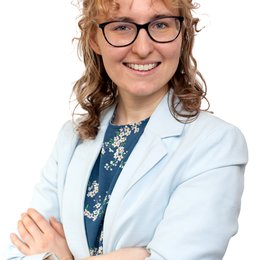
Stefánia Plankó
Syreon Research Institute & Invest for Health
In North Limburg (the Netherlands) 7 municipalities, 2 health insurers teamed up to pay for outcome with the health impact bond standing strong. The programme, worth €2,8 million, is funded …

Ruben Koekoek
Social Finance NL
Deep Dive 1.4 Beyond impact bonds: exploring new (and not-so-new) uses of outcomes-based contracting and impact investing
This session will explore innovative ways of working with outcomes-based contracts and impact investing. From the first impact bond lunched in 2010, many lessons have been learned and new tools developed to that builds and expand an outcomes mindset. In this session we will delve into a number of growth paths for the outcomes mindset, from the creation of an outcomes marketplace, to developing microbonds, to creating repositories and capacity-building tools for a broader portfolio of approaches that may be more appropriate in different contexts.
Find a recording of the event here.

Juliana Outes Velarde
University of Oxford

Royston Braganza
Grameen Impact Investments India

Dr Mara Airoldi
University of Oxford
Chair
Presentations
KOIS and Tiko are partnering to develop a new flexible and replicable financing model to fund the scale up of Tiko’s activities in its mature markets. To this end, we …
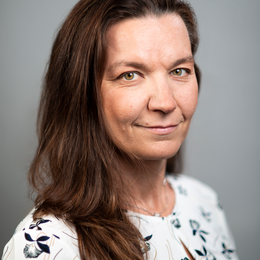
Serena Guarnaschelli
KOIS
The Village Enterprise Development Impact Bond spurred iteration to ensure success. While the project met and exceeded performance targets, the question arises: How can we foster innovation that transcends mere …

Celeste Brubaker
Village Enterprise
While the importance of long-term investment in prevention and health promotion has been at the forefront of policy discussions for decades, the actual level of investment in this area still …

Stefánia Plankó
Syreon Research Institute & Invest for Health

Prof Balazs Nagy
Syreon Research Institute & Invest for Health
Background: In many fragile contexts like Somalia, the coverage of essential health services is low. Different social accountability approaches were tested to address these challenges. Partnership Defined Quality (PDQ) is …

Dr Adam Abdulkadir
Save the Children
In Colombia, addressing the lack of measurement in government-implemented social programs has long been a challenge, impeding the assessment of their cost-effectiveness and transparent use of public resources. However, since …
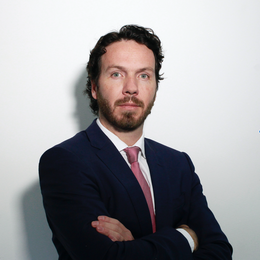
Daniel Uribe
Fundación Corona
Deep Dive 1.5 Reaching marginalised communities and enhancing inclusion in outcomes-based service provision
Outcomes contracts are designed around measurable impact. This session asks ‘measurable impact for whom?’, and explores the difficulties of providing beneficial services for vulnerable and marginalised people. From programmes for disabled children, to refugees, to survivors of domestic abuse, we will critically reflect on initiatives to include and support vulnerable communities within outcomes contracts. Key themes include: incentives to enhance inclusion; trust and sensitivity between providers and service users; developing community-centric definitions of outcomes and impact.
Find a recording of the event here.
Presentations
The Refugee Transitions Outcomes Fund (RTOF) was a cross-Government initiative led by the Home Office, running from 2022 to 2024. The RTOF piloted new place-based approaches to supporting people with …

Tanyah Hameed
Social Finance
The NSW Government, through the Department of Education (DoE) and Office of Social Impact Investment (OSII), has partnered with five job-focused social enterprises to advance the economic wellbeing of women …

Lucy Barkl
NSW Treasury
This on-going thesis investigates how a culturally sensitive, community-based savings model can be developed for the ultra-poor in poverty alleviation interventions. The research context is a DIB funded BRAC graduation …

Nnamdi Okolo
University of Sheffield
This presentation will explore the puzzle of how an outcomes fund can be harnessed to support inclusive outcomes for all. In many contexts, including sub-Saharan Africa, disability inclusion in early …

Christopher Kurt Burningham
EOF
Deep Dive 1.6 Revolutionary, responsible, and responsive relationalism in public procurement
This session will delve into the public procurement professional's role in relational public contracting for innovation, sustainability and VCSEs. By exploring the intricate relationship between procurement practices and relational contracting, we will highlight how professionals might drive social value through collaborative and responsible partnerships.
Find a recording of the event here.

Saema Jaffer
UK Parliament

Kate Gough
Freshfields

Dr Ruairi Macdonald
Faculty of Law, University of Oxford
Chair
Presentations
The Czech Republic and Slovakia are the countries with the lowest share of green procurement in the European Union. At the same time, these two countries are among the most …
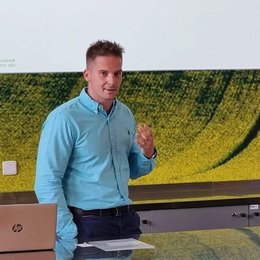
Prof Michal Plaček
Charles University
Public procurement is often used to invest in small and disadvantaged businesses (SDBs), both to help such firms grow and to advance marginalized communities. In the U.S., the federal government …

Dr Benjamin M. Brunjes
University of Washington
Governments and private partners often face unforeseen contingencies that make contract renegotiations unavoidable. This study leverages data from the Tender Electronic Daily eProcurement platform—based on European Union (EU) public procurement …

Professor Carolyn Heinrich
Vanderbilt University
There is increasing expectation for public procurement to deliver positive outcomes for society and the communities which public bodies serve. This emphasis on social value is not a new concept, …

Professor Jane Lynch
Cardiff University
BACKGROUND OF THE STUDY:
Intangible cultural heritage is often neglected in public procurement, but its inclusion can contribute to ensuring that local and cultural practices, expressions, knowledge, skills and traditions, …

Dr Carol Cravero
French Development Agency Group
Big Picture: Restoring trust in the public sector through outcome-based partnerships: transparency, relationality and adaptation
This year over half of the world’s population are heading to the polls for elections, yet governments are facing a crisis of confidence from their citizens. Restoring this trust requires governments to deliver results against a backdrop of what is being dubbed a ‘permacrisis’. What can be done to restore faith in the public sector? And what wider lessons might we learn from outcomes-based contracting to build and renew public sector capabilities, collaboration, and culture?
In this session, we will lift our gaze to these broader issues and ask:
- How can an outcomes-focus strengthen government capabilities through value for money and ensured impact of policies such as children's care, health, and homelessness?
- How might government meaningfully collaborate with other sectors to improve the delivery of public services?
- How might public services be strengthened with preventative spending, enabled through an outcomes-focus?
Find a recording of the event here.

Dr Joe Abah
DAI Global

Andrew Greenway
Public Digital

Dr Mekhala Krishnamurthy
Ashoka University

Alison Jeffrey
Department for Culture, Media and Sport (DCMS)

Dr Eleanor Carter
University of Oxford
Chair
The evolution of social outcomes partnerships in the UK: Distilling fifteen years of experience from Peterborough to Kirklees
The evolution of social outcomes partnerships in the UK: Distilling fifteen years of experience from Peterborough to Kirklees
Perspectives from across academia, policy and practice
Nearly fifteen years since the world’s first social impact bond was launched at HMP Peterborough in England, the impact bond model has been stretched and flexed to fund a growing array of social programmes across health, employment, education, social care and many more. Alongside this adaptation, we have also seen a shift in how this funding model is used and understood.
Yet for many beyond the immediate community working on these cutting-edge partnership projects, social impact bonds still equal the Peterborough SIB. This means that the understanding of the practice, potential and proof of impact of these innovative approaches remains fragmented and partial. Significant opportunities for public sector reform and systemic change will be missed as long as a fog of baffling terminology and mis-interpretation clouds how we see the role of outcomes and effective cross-sector in tackling the acute public services crisis the country faces.
This report brings together perspectives from across academia, policy and practice to take stock of UK’s experience with impact bonds over the past 15 years, to help inform and inspire best practice across the globe.

Professor Ngaire Woods
University of Oxford

Andreea Anastasiu
University of Oxford

Nick Hurd
GSG Impact

Michael Peoples
Kirklees Better Outcomes Partnership

James Magowan
CSY Directorate, DCMS
Oxford landmarks morning run
Stay active during the conference and discover some of Oxford's most iconic landmarks by joining us on an easy morning run. We will be starting the run at the Radcliffe Camera, in the very heart of Oxford.

Andreea Anastasiu
University of Oxford

Dr Jonathan Davies
University of Oxford
Registration opens
In-person participants will be able to register at the reception of the Blavatnik School of Government building before joining our Croissants and Collaborations for tea, coffee and pastries with other in-person attendees and speakers.
With our brand new 'Croissants & Collaborations', we're giving power to our communities by inviting them to lead informal sessions on topics of shared interest. These informal, thematic chats are for in-person participants over breakfast and a hot drink. These are a great opportunity for networking and to exchange ideas.
Making mission-based government a reality: relational contracting to achieve outcomes across organisational boundaries
Achieving outcomes requires different agencies and organisations to work together around aligned missions. Research suggests adopting a more relational approach to contracting and partnerships is critical to true collaboration. In this interactive session, we'll be sharing GO Lab and Public Digital's initial work on co-creating a framework to guide commissioners in establishing a relational contracting approach for complex outcomes-based services, and looking for people to share their experiences and insights as we iterate it together and test it in real-world commissioning challenges.
Hosted by Public Digital

Liam Sloan
Public Digital
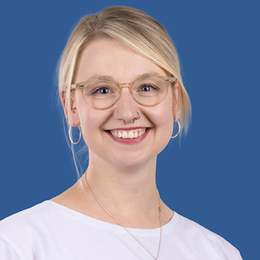
Connie van Zanten
Public Digital

Michael Gibson
University of Oxford

Dr Felix-Anselm van Lier
University of Oxford
Chair
Solving global issues in women’s health with partnerships
In this session, we will take stock of women’s health. A new report from World Economic Forum found that every $1 invested in women’s health unlocks $3 in economic growth globally. In this breakfast, we will look at the experience of different partnership arrangements to catalyse at scale women’s health programs. This will be informed by international case studies that have had success at improving reproductive health, gender equity, and maternal health literacy. We will assess three key questions:
- Can we align common goals and different actors in the field to work together using partnership?
- Can we use innovative funding or new governance arrangements to put women’s health at the forefront?
- What are the barriers and evidence-gaps to investing in women’s health?
Join online here: Join the meeting now
Meeting ID: 339 135 905 129
Passcode: LgSuj8

Dr Nevilene Slingers
South African Medical Research Council (SAMRC)

Dr Lee-Ann Davids
South African Medical Research Council (SAMRC)

Petro Rousseau
South African Medical Research Council (SAMRC)

Dr Mara Airoldi
University of Oxford

Dr Harry Bregazzi
University of Oxford

Emily Hulse
University of Oxford
Chair
Navigating the Academic Journey: Discussing the Challenges & Advice for Early Career researchers (PhD)
Join us for an informal session focused on the unique challenges faced by early career researchers. This open discussion is designed to offer practical advice, peer support, and insights into navigating the early stages of a research career. Whether you're tackling your PhD or transitioning into postdoctoral work, this session provides a relaxed environment to connect with others, share experiences, and gather tips to help you succeed in your academic journey.

Antonia Muhr
Vienna University of Economics and Business

Maya Tira
Audencia Business School

Dr Eleanor Carter
University of Oxford
Chair
More than a game: designing football for greater social impact
The benefits of practicing sport regularly are well understood and accepted. There is strong evidence pertaining to health and educational outcomes for participants, as well as improved social cohesion and well-being for communities and volunteers. Since 2017, UEFA has been quantifying the benefits in financial terms to strengthen the business case for government investment in recreational football. This has led to the development of Social Outcome Partnerships between football clubs, government and social investors.
In this breakfast we will discuss
a) How local sports organisations can design for greater impact, using outcomes based innovative finance models.
b) Whether frameworks such as CSRD/ESG reporting provide new opportunities for investing in sport for development (purposeship, outcome payments).
c) The case for blending public and private investment in sport so that better finance is linked to better outcomes.
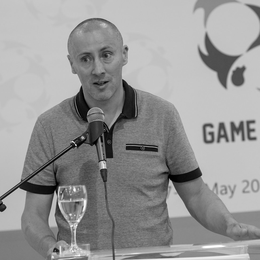
Liam McGroarty
UEFA

Andreea Anastasiu
University of Oxford

Danny Bisland
Scottish Football Association

Dr Tim Crabbe
Substance
Assessing progress and outcomes in outcomes-based partnerships
Outcomes-based contracts have a strong focus on the measurement of pre-agreed outcomes. Learning and transparency efforts usually put their attention on the final outcomes (or long-term outcomes) achieved by projects. However, we know little about the processes that projects put in practice to achieve those final results.
What is the role of intermediate (or short-term) outcomes in outcomes-based contracts?
How can we measure those achievements that are not long-term outcomes agreed in a contract, but still relevant intermediate outcomes for the beneficiaries?
What do intermediate outcomes tell us about the complexity of the context in which they operate? How can we capture learning through the process?
Come and join us for a breakfast session where we will discuss ideas for assessing progress and intermediate and final outcomes from a contribution perspective.
Transforming Social Service Delivery through AI-Driven Innovation
Participants will explore the cutting-edge innovations in AI that are transforming the landscape of social service delivery. This session will highlight the potential of AI to revolutionise service provision, and discuss an example of how these innovations can be implemented effectively within organisations.
Interested in finding out how Beam is helping to change the face of frontline delivery across social care? Join our breakfast session to find out more and join the conversation.
Deep Dive 2.1 Exploring outcomes funds: Evidence & lessons learnt from around the world
This session will feature a deep exploration of the latest practice and evidence around the use of outcomes funds. To date over 20 outcomes funds have been launched and implemented, spanning diverse countries and policy areas of focus. What is the state of play globally with outcomes funds? Where are new funds being developed? What can we learn from the practice to date about how to design and implement outcomes funds effectively?
Find a recording of the event here.

Emily Hulse
University of Oxford

Dr Eleanor Carter
University of Oxford

Neil Stanworth
ATQ Consultants

Lucy Luo
Australian Department of Treasury

Judi Drown
Department of Social Services

Andreea Anastasiu
University of Oxford
Chair
Presentations
This presentation delves into the governance structure of outcomes-based financing (OBF) programs involving various stakeholders, such as impact bonds and outcomes funds. Drawing on insights from the Sierra Leone Innovation …
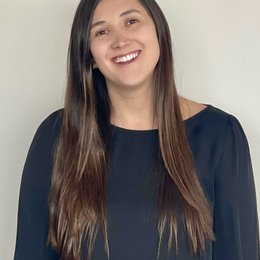
Juanita Peñuela Avila
Education Outcomes Fund
Outcomes funds were identified as early as 2018 in the first meeting of the Impact Bond Working Group as a promising OBF structure. Since then, the landscape has evolved significantly, …

Miléna Castellnou
Education Outcomes Fund
Deep Dive 2.2 Cross-sector services in fragile settings: crisis, collaboration, and results
Stability and social cohesion are the foundations of improved social outcomes. It is therefore little surprise that populations affected by violence and displacement often have weak services and poor outcomes. While aid to fragile and conflict-affected states has increased, the success of development spending in these contexts remains questionable. There is an urgent need to better understand factors that would constitute more effective support for vulnerable populations.
This session explores the theory and practice of cross-sector collaboration in fragile contexts. Key themes include: results-based partnerships; trust and inclusion; accountability and transparency.
Find a recording of the event here.

Dr Harry Bregazzi
University of Oxford

Dr Isabella Bunn
Regent’s Park College
Chair
Presentations
For the last two years, Instiglio, with the support of the Conrad N. Hilton Foundation, has been implementing the Forced Displacement Practice Initiative. We work with government agencies and service …

Sebastian Chaskel
Instiglio
Working in fragile contexts is challenging: Needs are immense, risks are multi-layered and resources – with the exception of a few high-profile situations – limited. There is often no government-led …

Christina Bennett
Start Network
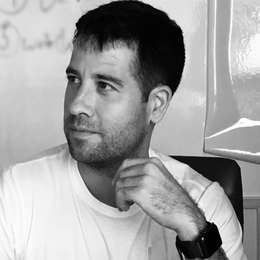
Zachary Levey
Levoca

Jean Emmanuel Desmornes
IDB Lab
Deep Dive 2.3 Data into evidence, and evidence into practice: putting data at the centre of decision-making
This session will showcase a number of initiatives where data on outcomes plays a key role in shaping decisions. Producing and using data on outcome metrics, targets and achievements takes time and effort. In this session, we will discuss what are the metrics and indexes that are used the most, how they feed further decision-making processes and the trade-offs that happen when data is transformed into action.
Find a recording of the event here.
Presentations
A Cook Islands approach towards defining and improving turanga memeitaki (wellbeing) for all through our ‘Akapapa’anga (genealogical world view).
The Cook Islands National Sustainable Development Plan 2016-2020 (Cook Islands Government, …

Valery Wichman
Pacific Regional
Skill Impact Bond (2021-2025) is a pioneering results-based financing (RBF) programme, which seeks to improve employability and livelihoods for India’s youth – particularly young women. The largest development impact bond …

Phalasha Nagpal
Oxford Policy Management

Dr Divya Nambiar
Oxford Policy Management
Global resources and interest in both outcomes-based financing and impact investing have surged in recent years, and there is an impetus to deepen and widen impact whilst balancing dynamics in …

Dr Julia Mensink
Acumen
Since 2008, over 40 countries have implemented national Multidimensional Poverty Indices as official statistics to monitor poverty in all its forms. In addition, the index is being used by various …
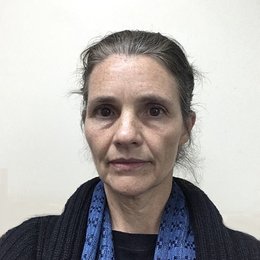
Dr Sabina Alkire
University of Oxford
Tiko, a tech-driven African non-profit organisation, will showcase the transformative power of transparent, real-time data within the context of Development Impact Bonds (DIBs), specifically focusing on their efficacy in innovative …

Benoit Renard
Tiko
In collaboration with local authorities and county administration boards we are exploring data-driven practices to better address risk and protective factors concerning health and wellbeing for children and adolescents. The …

Tomas Bokström
Public Health Agency of Sweden
India has a history of strained trust and transparency among civil society, government, and the private sector. Instances of fraud and poor outcomes have plagued development programs. At the same …

Nitya Daryanani
British Asian Trust
Academic paper workshop
We are delighted to be hosting an academic paper workshop for the first time at the Social Outcomes Conference. This will be an interactive session, providing an opportunity to gather with peers and workshop your academic paper.
If you are interested in participating, please contact Michael Gibson.

Prof Ole Helby Petersen
Roskilde University

Michael Gibson
University of Oxford
Chair
Learning from the Life Chances Fund projects: impact & ways forward
In this practice-focused session we will dive deep into the experience of some of the social outcomes partnership projects supported through the Life Chances Fund. We will look at projects across different policy areas to explore impact, success factors as well as implementation challenges. We will also reflect together on the projects’ sustainability plans and legacy.
The Life Chances Fund (LCF) is a pioneering £70m programme, launched by the UK Government in 2016. It supports 29 locally-commissioned projects focussed on supporting vulnerable individuals, and it is underpinned by an ambitious and innovative data and evaluation agenda. Find out more about the impact of the Life Chances Fund through this video.
Find a recording of the event here.

Ashley McCaul
Think Forward

Joe Prendiville
AllChild

Jessica Reedy
University of Oxford
Chair
Presentations
The imperative for robust multi-stakeholder partnerships has emerged as a cornerstone for initiating meaningful social change. The Skill Mill Social Outcomes Partnership (SOP), a model borne from a statutory, multi-disciplinary …

David Parks OBE
The Skill Mill
The Stronger Families partnership will host a conversation, considering relationship development within the partnership and the role this has had in creating supportive systems for programme delivery and adaptations to …

Faye Moloney
Norfolk County Council
Social impact poster gallery
We recognise that there is so much exciting and meaningful work which can’t be fit into the discussion panels. This is why we are hosting a social impact poster gallery where participants are invited to showcase evidence and insights from pioneering work.
The posters will be on display physically in the Inamori Forum at the Blavatnik School and virtually on the SOC24 webpage. They will be displayed both virtually and physically so that all attendees, both online and in-person, can view the posters.
Deep Dive 2.4 Disrupting the narrative: global perspectives to inspire leading outcomes practice
Join us for this session where we'll explore pioneering initiatives in social outcomes partnerships worldwide. Hear from experts representing diverse regions including the Middle East, Latin America, Africa, and Asia, offering invaluable insights beyond conventional Western paradigms. Gain fresh perspectives and innovative strategies to drive impactful change in social outcomes initiatives.
Find a recording of the event here.

Jessica Reedy
University of Oxford

Margarida Anselmo
Maze - Impact Portugal

Christopher Gee
The Institute of Policy Studies

Dr Chih Hoong Sin
Independent
Chair
Presentations
In the evolving discourse on corporate responsibility and sustainability, the concept of Mandatory Self-Regulation (MSR) emerges as a critical framework for ensuring that partnerships deliver tangible benefits to marginalised communities. …

Paola Fonseca
VIVA Idea/GAIL/UN University for Peace
Istanbul Kodluyor is the first Social Impact Bond in Türkiye, launched in August 2023 by the government in Turkiye. The programme is targeted to support 600 long-term unemployed young people …

Mustafa Karabaş
ISTKA
More than ever before, changes in welfare services in Israel and worldwide require us to continually examine the implementation of interventions and their suitability for their purposes. These professional, normative …
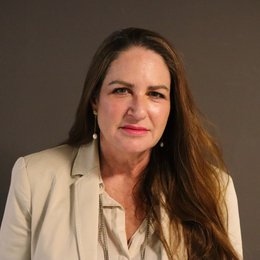
Dr Tal Arazi
MJB
Deep Dive 2.5 Empowering voices, bridging gaps: innovative approaches to locally-led development and cross-sector collaboration
This session will explore innovative strategies that empower local communities, engage service users and vulnerable groups, and enhance cross-sector collaborations for sustainable development and social impact.
Find a recording of the event here.
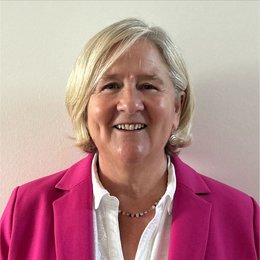
Katie Kelly
New Local
Chair
Presentations
Tackling grand challenges requires working with, for, and across vulnerable communities. While scholarly work has outlined the types and roles of communities in driving positive social change, we lack empirical …

Dr Haley Beer
Warwick Business School

Mark Scott
WBS
Locally led development recognises the importance of involving the people and communities affected by development and humanitarian challenges in designing and delivering solutions. Ensuring that local people and organisations can …

Louise Savell
Social Finance

Alison Bukhari
Educate Girls
In the landscape of outcomes-based contracting, the voices of not-for-profits play a crucial role in effective project implementation and driving social change. Present-day private financing is predominantly donor-driven, limiting scalability …
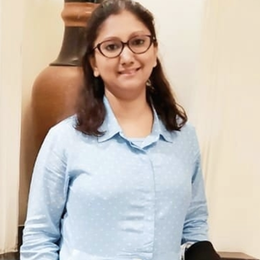
Dr Ria Sinha
Indian School of Development Management
Two recent outcomes-driven collaborations in Australia have shown the critical nature and the value of strong governance and accountability systems to establishing strong, viable trust-led outcomes-based partnerships.
In the first …

Russell Wood
Bedrock Social Co
We present two case studies of cross-sector partnerships, which include nonprofit organizations, local government, and academic institutions to highlight the potential of community driven research and impact, which engages community …

Dr Kristina Patterson
Georgia Southern University
As part of the multi-year study of the Kirklees Better Outcomes Partnership (KBOP) SIB peer-researchers investigated service participants’ experiences. The KBOP SIB is a housing support service for vulnerable adults, …

Lucy Charles
KBOP
Deep Dive 2.6 The public sector in relational contracting: contracting by the People, for the People
At SOC23, we examined the potential for formal relational contracting to support more effective contracting when the public sector seeks to source complex services from private providers. In this SOC24 session, we'll instead focus on the role of the public sector in formal relational contracts, examining (1) the particular challenges posed by the involvement of a public actor in the contract (e.g. public accountability, political pressure etc.) and (2) the public sector capabilities needed to overcome these challenges.
Find a recording of the event here.

Prof Ole Helby Petersen
Roskilde University
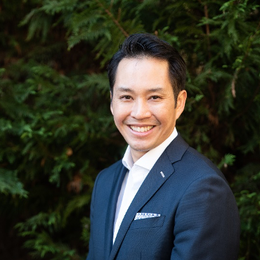
Jonathan Ng
USAID

Michael Gibson
University of Oxford
Chair
Presentations
Drawing from WorldCC research and market engagement plus an up-coming report on public sector outsourcing (Justice working party), the presentation will offer insight to the challenges of contracting for outcomes. …

Tim Cummins
World Commerce and Contracting
In France, public contracts for the concession or outsourcing of public services to a private provider represent 6% of the national GDP (Institut de la Gestion Déléguée, 2022). For the …

Justine Le Floch
IAE Paris Sorbonne
JUSTICE recently published its latest Working Party report on public sector contracting: ‘Beyond the Blame Game: A responsible and rights-centred approach to government contracting’. The Working Party was chaired …

Philip Armitage
JUSTICE
Big Picture: Beyond pilotitis: rethinking narratives and actions to institutionalise outcomes
This session will bring together some of the most experienced leaders in the field to ask: how can we move beyond pilots and experimentation to harness the potential of outcomes-based funding for social and environmental change at scale? We will anchor the discussion in three core questions:
- What can we learn from the success but also failure to date in using outcomes-based approaches as a catalytic enabler of a broader transformation of systems to be re-oriented towards delivering impact?
- What are the key structural barriers that prevent mainstream adoption of outcomes-based programmes by the public sector and is a ‘blueprint to scale’ possible?
- Do we need to improve what we deliver, how, and who we build outcome-focused partnerships with, or should we simply adjust our expectations on the pace of change?
Find a recording of the event here.

Aneta Wierzynska
The Global Fund

Andreea Anastasiu
University of Oxford
Chair
Presentations
Through interviews with global experts from government agencies, delivery partners, and investors from across South-East Asia, the Middle East, Europe, Africa and the Americas our research revealed that obstacles to …

Raffaella De Felice
GSG Impact
The Pioneer Outcomes Funds (POF) programme is the FCDO’s first attempt at using innovative pay-for-success instruments at scale, across a number of outcomes areas, in order to drive better public …

Radana Toner
FCDO
The effectiveness of the global development sector’s spending is constrained by several factors, including aid institutions deploying their funding without strong impact incentives. In response to international agreements such as …

Nicole Pflock
Instiglio
Reaching the SDGs is not just about spending more money; it is also critically about spending the money we have more effectively. One promising solution is outcomes-based finance (OBF), where …

Dr Amel Karboul
EOF
This is a public talk we are hosting to mark the close of the conference. If you would like to join, register here: https://www.bsg.ox.ac.uk/events/power-people-and-places-what-does-it-take-deliver-social-change-more-equal-britain.
The Mayor will be in conversation with Kathy Hall, Chief Operating Officer of the Blavatnik School of Government at the University of Oxford. Their talk will conclude this year’s Social Outcomes Conference – the world’s leading gathering of scholars, government officials and civil society leaders working to improve social outcomes. For the talk, the Mayor will join us live via video link.
Find a recording of the event here.
Power to People and Places: What does it take to deliver social change for a more equal Britain? In Conversation with Andy Burnham, Mayor of Greater Manchester
Britain is one of the most politically centralised and economically unequal countries in the developed world. Spatial inequalities in the country are profound and persistent. Where a person is born impacts their life chances and outcomes – be it in terms of health, education or employment – throughout their lives. The imperative to build a more equal and fairer country is clear, but what will it take to deliver the change that’s so greatly needed?
In this thought-provoking talk Andy Burnham, the Mayor of Greater Manchester, will build on his decades-long experience in public service to make the case for reform and outline his rallying cry for more power to local places and people. In his talk, the Mayor will touch upon key themes such as devolution, public accountability, civic engagement and the role of strong partnerships at the local level to achieve social change and better social outcomes.
The Mayor will be in conversation with Kathy Hall, Chief Operating Officer of the Blavatnik School of Government at the University of Oxford. Their talk will conclude this year’s Social Outcomes Conference – the world’s leading gathering of scholars, government officials and civil society leaders working to improve social outcomes. For the talk, the Mayor will join us live via video link.
About Andy Burnham
Andy Burnham was first elected as Mayor of Greater Manchester in May 2017, re-elected for a second term in May 2021 and a third term in May 2024.
Responsible for shaping the future of Greater Manchester, Andy’s priorities for his third term include continuing to build a London-style integrated transport system, ending the housing crisis by 2038, offering a new technical education pathway as an alternative to university and creating a new Live Well service, making Greater Manchester a great place to grow up, get on, and grow old.
Before being elected Mayor of Greater Manchester, Andy was MP for Leigh from 2001. In government, Andy has held Ministerial positions at the Home Office, Department of Health and the Treasury. In 2008 he became Secretary of State for Culture, Media and Sport, before returning to Health as Secretary of State in 2009.
In opposition, Andy has served as Shadow Education Secretary, Shadow Health Secretary and Shadow Home Secretary.
Andy lives in Leigh, Greater Manchester, with his wife and three children.
He is the co-author, alongside Steve Rotherham, of Head North: A Rallying Cry for a More Equal Britain.

Andy Burnham
Greater Manchester

Kathy Hall
University of Oxford
SOC24 Closing celebration gala & remarks
A celebratory ending and closing remarks with moments of community, insights, and connection. Join us for drinks, nibbles, music, and reflections for this final celebration in our beautiful venue.
Find a recording of the event here.

Jessica Reedy
University of Oxford
Enter access code
Submit the event access code to reveal the session/meeting credentials.


